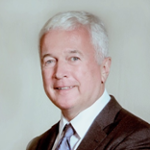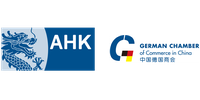This is a past event. Registration is closed. View other German Chamber of Commerce in China - Shanghai events.
Where
AHK Shanghai - 25/F China Fortune Tower / 中建大厦25楼, 1568 Century Avenue / 世纪大道1568号
25/F China Fortune Tower 中建大厦25楼
1568 Century Avenue 世纪大道1568号
Pudong District 浦东新区
Shanghai 上海
Home
On August 23rd Prof. Dr. Klaus Segbers will be at the German Chamber offices. Prof. Segbers advises the German government and others on foreign policy questions designs. As the director of the Center for Global Politics he focuses on designing innovative concepts of knowledge-building and transfer, including the development of e-education and blended learning programs in international contexts. On the occasion of his visit, the German Chamber organizes an exclusive breakfast get-together with Prof. Segbers.
Prof. Segbers will give his assessment on “Populism and Global Politics” and then enter into a discussion with the participating invitees.There is a new populist wave covering many parts of the world, including the U.S. and parts of Europe. Topics triggering populism are transnational trade, immigration and identity politics. The populist discourse focuses on offering simple solutions for complex problems and offers the reestablishment of national borders (in a globalized world) as a panacea for all kinds of problems. There is also an external dimension of populism: it limits the space for external negotiations of governments. The talk will present a roadmap for understanding this relevant and threatening wave.
Prof. Segbers will give his assessment on “Populism and Global Politics” and then enter into a discussion with the participating invitees.There is a new populist wave covering many parts of the world, including the U.S. and parts of Europe. Topics triggering populism are transnational trade, immigration and identity politics. The populist discourse focuses on offering simple solutions for complex problems and offers the reestablishment of national borders (in a globalized world) as a panacea for all kinds of problems. There is also an external dimension of populism: it limits the space for external negotiations of governments. The talk will present a roadmap for understanding this relevant and threatening wave.
Home
Moderator & Speaker

Prof. Dr. Klaus Segbers
Chair of Political Science at the Institute for East European Studies; professor for International Relations at the Otto-Suhr-Institute for Political Science (OSI) at the FU Berlin
